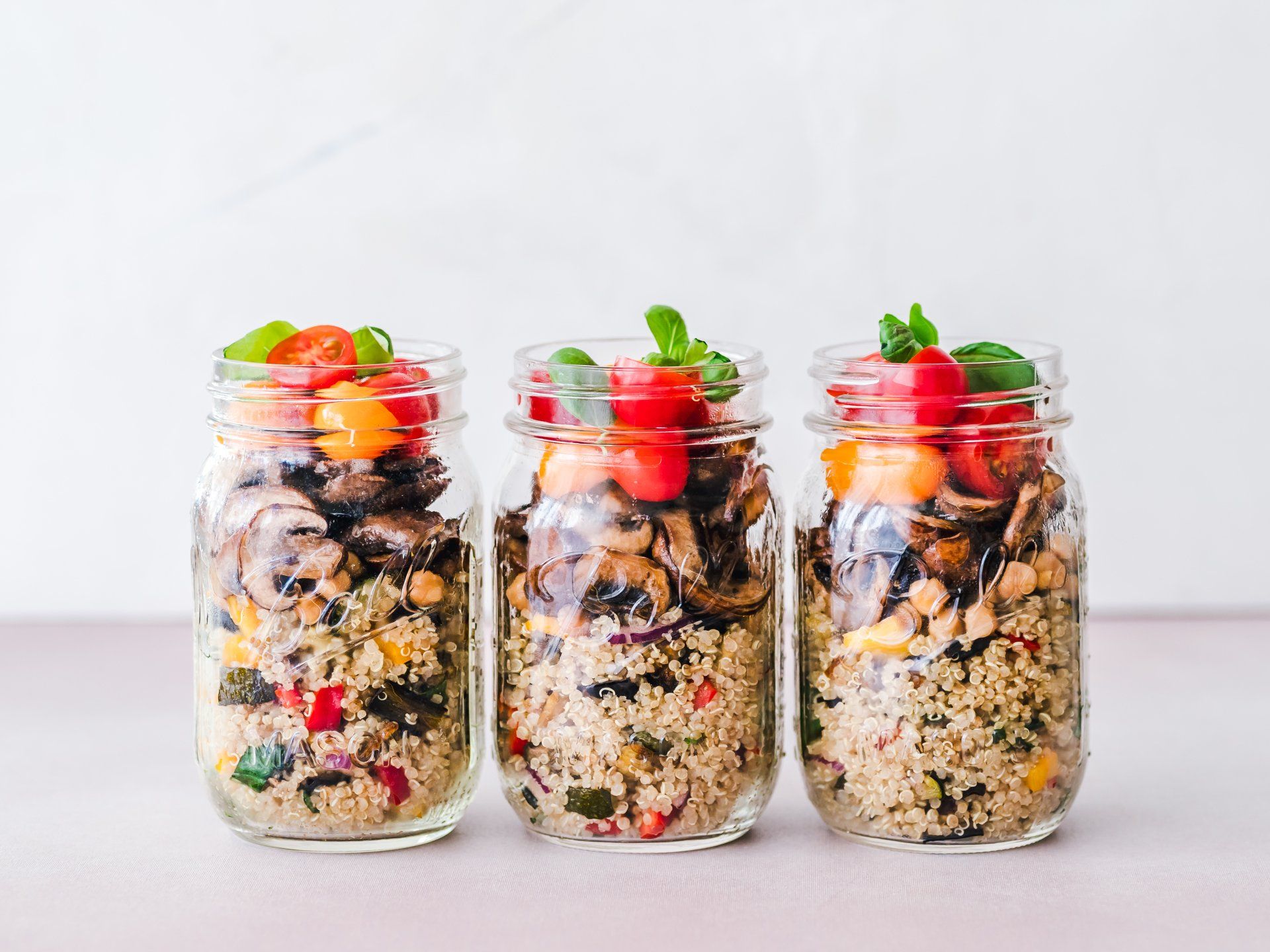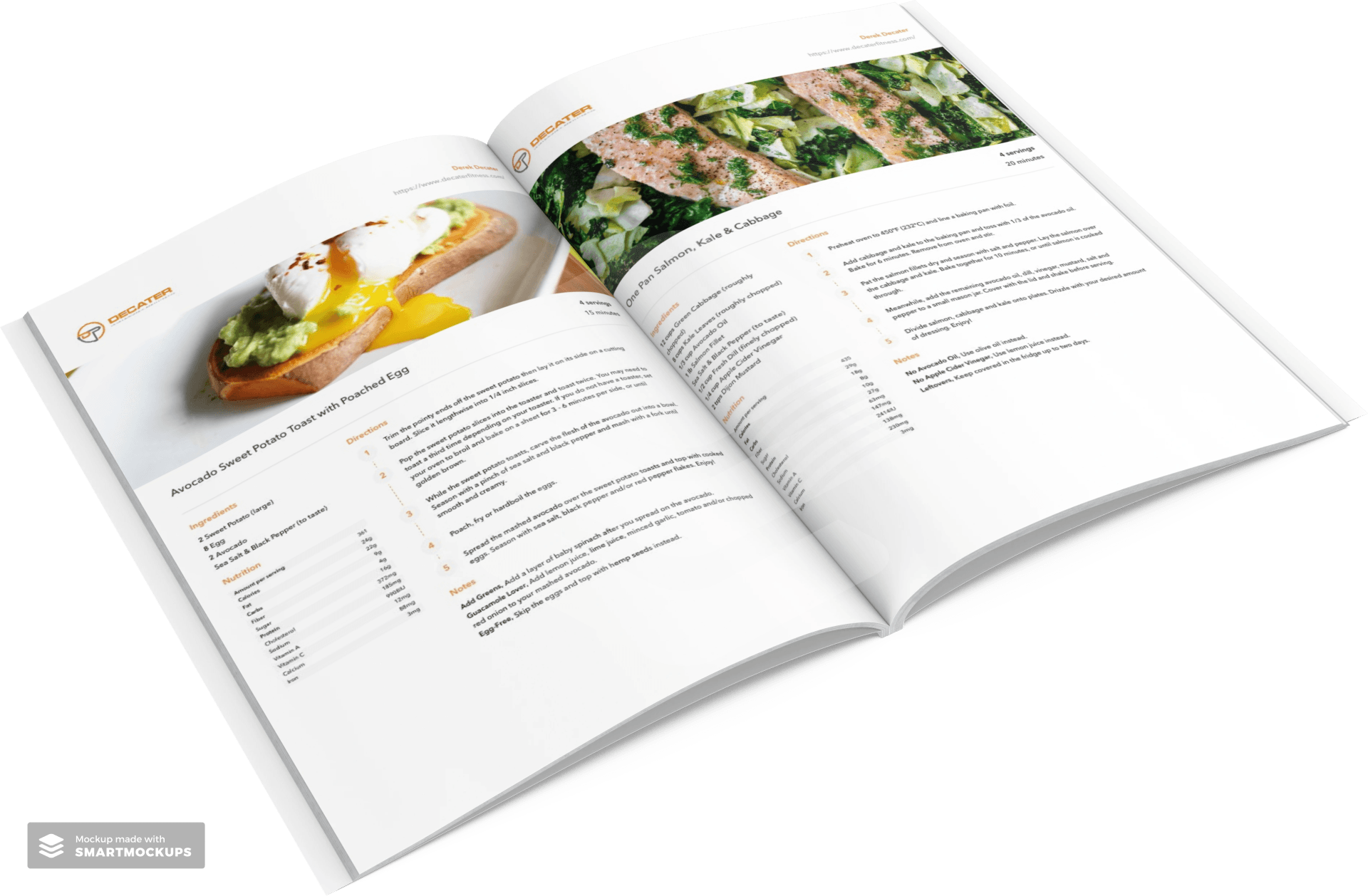Beyond Probiotics: 3 Little-Known Ways to Boost Gut Health for Fat Loss
Top 3 Things You Probably Don’t Know About Improving Gut Health

When it comes to gut health, most advice out there sticks to the basics: eat more fiber, take probiotics, and cut down on sugar. While these tips are solid, they’re just the tip of the iceberg. To really dial in your gut health, you need to dig deeper into the lesser-known factors that play a huge role in how your digestive system functions. Here are three surprising insights into gut health, plus some practical strategies to help you make them part of your daily routine.
1. Your Gut's Relationship with the Circadian Rhythm
You’ve probably heard that your body runs on a 24-hour cycle called the circadian rhythm, which helps regulate everything from your sleep patterns to your hormone levels. But did you know your gut has its own circadian rhythm too? This rhythm is key to how your body digests food, absorbs nutrients, and maintains a balanced gut microbiome.
Why It’s Important:
Eating at random times—especially late at night—can throw off your gut’s natural rhythm, leading to digestive issues like bloating, indigestion, and even weight gain. Research shows that sticking to consistent meal times can help keep your gut microbiome in check, which is crucial for digestion and overall health.
Strategies to Align Eating with Your Circadian Rhythm:
- Consistent Meal Times: Aim to eat your meals at the same times each day. For example, if you usually have breakfast at 7:00 AM, lunch at 12:00 PM, and dinner at 6:00 PM, try to stick to this schedule even on weekends.
- Avoid Late-Night Eating: Try to finish your last meal at least 2-3 hours before bed. This gives your gut a break and aligns better with its natural rhythm.
Meal Prep Tips for Consistent Eating:
- Plan Ahead: Prep your meals and snacks in advance so you’re not scrambling to find food at irregular times. This could mean cooking extra portions at dinner and saving them for lunch the next day.
- Batch Cooking: Set aside time on a Sunday to cook and portion out meals for the week. Think simple, easy-to-store meals like stir-fries, soups, and grain bowls.
2. The Role of Polyphenols in Gut Health
Polyphenols are plant compounds that are often praised for their antioxidant properties, but their benefits go way beyond that. These compounds play a crucial role in maintaining a healthy gut by feeding beneficial bacteria and reducing inflammation.
Why It’s Important:
Polyphenols act as prebiotics, meaning they nourish the good bacteria in your gut. Unlike other nutrients, polyphenols aren’t fully absorbed in the small intestine, so they make their way to your colon where they can really work their magic. This not only enhances gut microbiome diversity but also helps with digestion, reduces inflammation, and even boosts fat metabolism.
List of Polyphenol-Rich Foods:
- Berries: Blueberries, strawberries, raspberries, and blackberries are easy to add to your diet and pack a polyphenol punch.
- Dark Chocolate: Opt for dark chocolate with at least 70% cocoa content. It’s a tasty way to get more polyphenols.
- Green Tea: A daily cup of green tea is a simple way to boost your polyphenol intake.
- Nuts and Seeds: Almonds, walnuts, and flaxseeds are not only rich in polyphenols but also provide healthy fats.
- Red Wine: In moderation, red wine can be a good source of polyphenols like resveratrol. Just keep it to one glass a day.
How to Incorporate More Polyphenols:
- Smoothies: Add a variety of berries and a handful of greens to your smoothies. Throw in some flaxseeds for an extra boost.
- Salads: Top your salads with nuts, seeds, and a handful of berries. Use olive oil and balsamic vinegar for a polyphenol-rich dressing.
- Teas and Infusions: Swap out one of your daily coffees for a cup of green or herbal tea like hibiscus, which is rich in polyphenols.
3. The Impact of Chronic Stress on Gut Barrier Function
We all know that stress can mess with your head, but it can also wreak havoc on your gut. Chronic stress doesn’t just make you feel anxious—it can physically alter the structure and function of your gut, leading to what’s commonly known as "leaky gut."
Why It’s Important:
Chronic stress weakens the tight junctions in your gut lining, making it easier for harmful substances to pass into your bloodstream—a condition known as "leaky gut." This can trigger inflammation and contribute to a range of health issues, including autoimmune diseases. Plus, stress disrupts your gut microbiome, reducing the number of good bacteria and allowing harmful ones to thrive.
Strategies to Reduce Stress for Better Gut Health:
- Mindfulness and Meditation: Just 10 minutes of mindfulness or meditation a day can make a big difference in how your body handles stress, improving your gut health in the process.
- Physical Activity: Regular exercise, whether it’s walking, cycling, or lifting weights, helps lower stress hormones like cortisol, which can benefit your gut.
- Adequate Sleep: Aim for 7-8 hours of quality sleep each night. Poor sleep only adds to your stress levels and harms your gut.
- Journaling: Writing down your thoughts can be a great way to manage stress. Journaling before bed can also help you sleep better, which is a win for your gut.
- Seek Social Support: Connecting with friends, family, or a support group can help buffer the effects of stress on your body and mind.
Conclusion
Optimizing your gut health is about more than just popping a probiotic or eating more fiber. Understanding how factors like circadian rhythms, polyphenols, and stress management play into your digestive health gives you powerful tools to take control of your well-being. By implementing these deeper insights into your daily routine, you can improve your gut function, reduce bloating, and support long-term fat loss. Start making these small but impactful changes today for a healthier gut and a healthier life.












